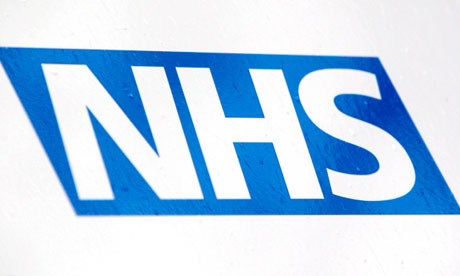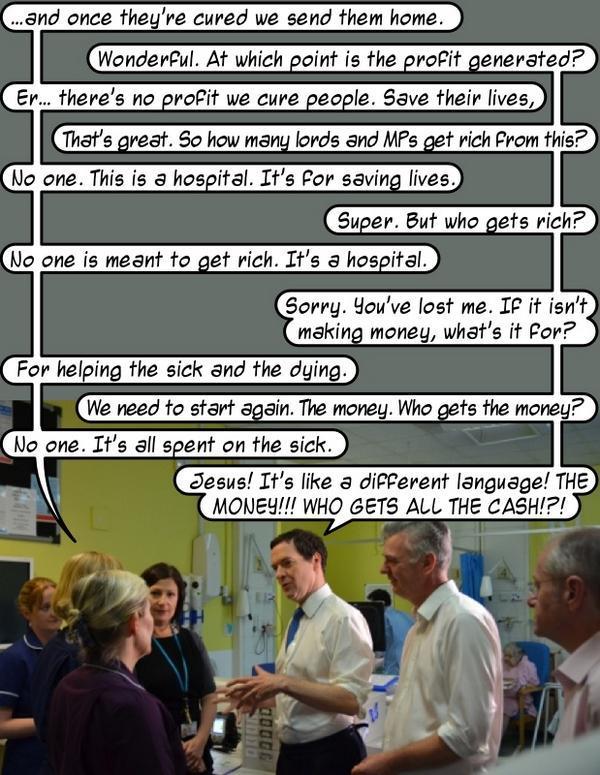How austerity caused the NHS crisis
The A&E delays can be traced back to Cameron – and have been worsened by successive health secretaries
Original article republished from Open Democracy under Creative Commons Attribution-NonCommercial 4.0 International licence.

4 January 2023, 1.19pm
When the coalition government first introduced its landmark Health and Social Care Act in 2010, health secretary Andrew Lansley claimed the NHS would never again need to undergo such huge organisational change.
But even at the time, one widely respected commentator warned that – far from being the final fix that Lansley had advertised – the act “could become this government’s ‘poll tax’”.
In the event, it has been a slow-burn poll tax. Only now, ten years after it came into law, are we seeing its full effects, with publications from The Times to the Morning Star reporting that “A&E delays are ‘killing up to 500 people a week’”.
This figure – 5% above the normal number of people who die each week, though that baseline is also rising – can surely be traced back to the act, which ushered in a greater wave of privatisation than ever before. It compelled NHS management to behave as if they were in the private sector, competing to win business, and led to an increase in the proportion of contracts won and the use of contracts overall.
Get our free Daily Email
Get one whole story, direct to your inbox every weekday.
At the time, the damage caused was little noticed because government cuts in the first round of austerity targeted local authorities and adult social care. The first group of people to see their life expectancy fall were elderly women who most often lived on their own. It was in 2014 that this connection became apparent.
Back then, the government was still confident, with the Department for Health and Social Care rebutting any suggestion that austerity and privatisation might be linked to mortality. The privatisation figures were also opaque. In 2015, halfway through Jeremy Hunt’s tenure as health secretary, it was reported that ministers were misleading the public. By that point, private firms were winning 40% of new contracts – far higher than the 6% spend share claimed by the government and almost identical to the 41% won by NHS bodies.
The first great increase in mortality was recorded in that same year, a 5% rise that the government tried to attribute to influenza. The problem with that explanation was that the stalling and falls in life expectancy were not seen to the same extent anywhere else in Europe.
Last year it was claimed that austerity since 2010 had led to a third of a million excess deaths
By 2019, life expectancy for women had fallen in almost a fifth of all neighbourhoods and in over a tenth for men. Poorer people, both old and young, in poorer areas suffered most, with infant mortality among babies born to the poorest parents rising. Later there was a rise in deaths of women who were pregnant.
As NHS waiting lists spiralled, a tenth of all adults, most of those who could, were resorting to accessing private health care in 2021. But, in doing so, they lengthened the lists further by jumping the queues and thus diverting resources.
By April 2022, the number of vacant beds in hospitals was at an all-time low. Estimates of the damage done kept rising. Less than six months later, it was claimed that austerity since 2010 had led to a third of a million excess deaths, twice as many as from the pandemic.
Now, A&E departments are stretched to capacity, unable to clear patients to other beds in our hospitals as they could in the past. Those other beds cannot be cleared as they were before because adult social care has been repeatedly decimated, with what is left being tendered out to private companies.
All of this was foretold. In the four years after 2015, the value of one group of private sector contracts in the NHS rose by 89%. These figures were released just before the 2019 general election, partly in response to Matt Hancock, then the health secretary, claiming that “there is no privatisation of the NHS on my watch.”
Again, the damage was not so much through the extent of covert privatisation, but through the wider ethos that had been promoted. Take the USA: most of the enormous amount of money spent on healthcare there has little impact on improving health, because the ethos is wrong.
Related content: No one voted for Rishi Sunak to return the UK to crippling austerity
24 October 2022 | Adam Ramsay
OPINION: Sunak wants yet another round of cuts to public spending. And just like in 2010, we didn’t vote for it
It is sometimes said – wrongly, that is – that the NHS has not been further privatised because the share of its spending that went to the private sector remained roughly the same between 2012 and 2020. By 2020 that share was about 7%, or just under £10bn a year. It rose to over £12bn during the pandemic when the government paid private hospitals to treat patients, but because overall health spending rose, the proportion remained roughly the same, still around 7%.
But the number of private companies involved did increase greatly, particularly in areas where there was already more private healthcare. By last year, private firms were delivering a quarter of all planned NHS hospital treatment in the least deprived areas of England, and 11% in the most deprived areas. Those shares – which have risen since 2020 – are higher than the overall 7% because it is in planned hospital treatment where the private sector has most infiltrated the NHS.
Last year, the Health and Care Act of 2022 put paid to Lansley’s claim that he had fixed the NHS ‘once and for all’. The act reduces the compulsion of the NHS from having to tender so many services to private sector bidding in future, but it was not designed to stop the rot. It will not solve the service’s problems, though there is hope that it could be the beginning of an actual change in ethos.
The pandemic made the effects of privatisation clear: Britons now have the worst access to healthcare in Europe and some of the worst post-pandemic outcomes. But the successive health secretaries who inflicted this tragedy are unrepentant.
The pandemic made the effects of privatisation clear: Britons now have the worst access to healthcare in Europe and some of the worst post-pandemic outcomes. But the successive health secretaries who inflicted this tragedy are unrepentant.
In 2018, Lansley criticised Hunt’s cuts in screening services, blaming them for delaying the detection of his bowel cancer. Hunt, meanwhile, went on to become foreign secretary and then chancellor of the exchequer. His legacy, as openDemocracy’s Caroline Molloy wrote last year, is “one of missed targets, lengthening waits, crumbling hospitals, missed opportunities, false solutions, funding boosts that vanished under scrutiny, and blaming everyone but himself.” Hancock is now most remembered for eating a camel penis and cow anus on live TV for money.
Belligerence, bravado and buffoonery. We got here because too many of us believed the words of fools.
Original article republished from Open Democracy under Creative Commons Attribution-NonCommercial 4.0 International licence.

